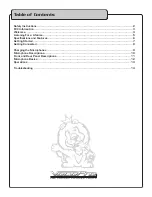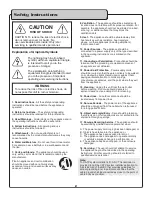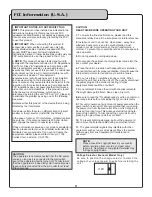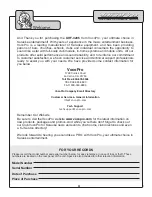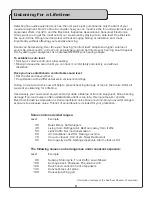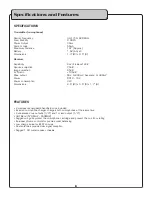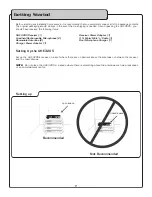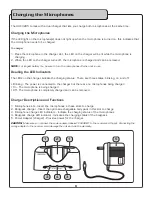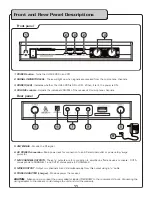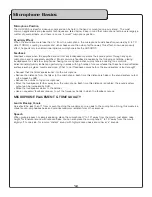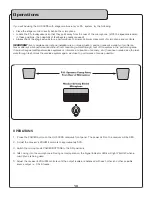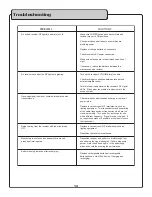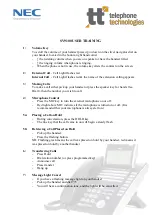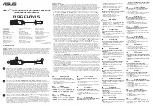
14
Troubleshooting
PROBLEMS
No sound; receiver RF light(s) and mic(s) not lit.
No receiver sound but the RF lights are glowing.
Received signal is noisy or contains interference with
transmitter on.
Noise coming from the receiver with the mics turned
OFF.
Momentary loss of sound as transmitter is moved
around performing area.
Battery running low even after recharging.
SOLUTIONS
Make sure POWER switches on transmitters and
receiver are set to ON positions.
Check microphone batteries to ensure they are
providing power.
Replace or charge batteries if necessary.
Check receiver's AC power connection.
Make sure antennas are in the microphones' line of
sight.
If necessary, reduce the distance between the
microphones and reciever.
Turn up the receiver's VOLUME level controls.
Check for proper connection between receiver and
external amplifier/mixer.
Talk into the mic and observe the receiver's RF signal
LEDs. If they glow, the problem is elsewhere in the
sound system.
Check microphone batteries and charge or replace if
power is low.
Remove local sources of RF interference, such as
lighting equipment. Two transmitters may be operating
at the same frequencies or frequencies which are too
close in proximity. Turn one off or exchange for one
with a different frequency. Signal may be too weak. If
so, reposition antenna (If possible, move them close to
the transmitter).
Remove local sources of RF interference, such as
lighting equipment.
Reposition the receiver or antennae.
Reposition receiver and perform a "walkthrough" test
and observe the signal strengths. If audio droppouts
persist, mark these "dead spots" in the performing
areas and avoid them during the performance.
Replace rechargeable batteries (rechargeable
batteries have a life of 500 hours of charging and
recharging).
Summary of Contents for UHF-3205
Page 16: ...C T M R ...


